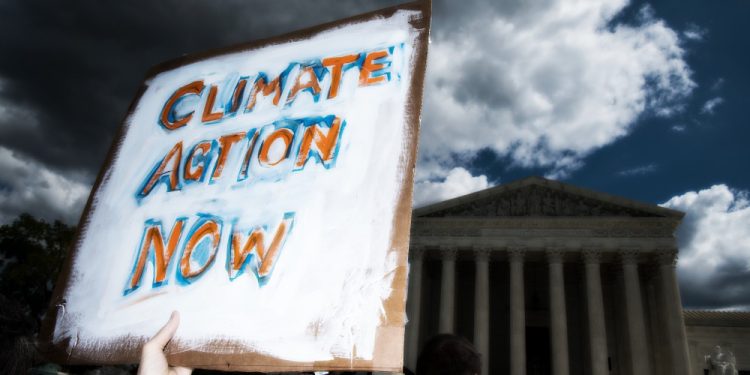Republican Texas Rep. August Pfluger and West Virginia Sen. Shelley Moore Capito introduced legislation Monday morning aiming to preempt any possible attempt by President Joe Biden to use emergency powers to circumvent congressional checks on his administration’s sweeping climate agenda.
“The Real Emergencies Act” would clarify that the president is unable to invoke emergency powers permitted by the National Emergencies Act, the Disaster Relief and Emergencies Act and the Public Health Service Act on the basis of a perceived climate change crisis. Senate Majority Leader Chuck Schumer and other left-wing congressional lawmakers have called for Biden to declare a national climate emergency to further his administration’s aggressive climate agenda.
“I am proud to join Senator Capito in introducing the Real Emergencies Act, which will prevent the White House from distracting from real emergencies – like skyrocketing inflation and record-high energy costs – by declaring climate change a national emergency,” Pfluger told the Daily Caller News Foundation. “Our legislation ensures that President Biden does not abuse the power of his office to pursue his anti-American energy agenda against the will of the American people.”
Schumer said in January 2021 that a declaration of climate emergency would enable Biden to “do many, many things under the emergency powers of the President that wouldn’t have to go through – that he could do without legislation.” Schumer’s comments came as the Inflation Reduction Act had stalled in congress amid Democratic West Virginia Sen. Joe Manchin’s initial refusal to support many of the bill’s provisions in an evenly-divided Senate.
The Congressional Progressive Caucus (CPC) similarly urged Biden to invoke emergency powers on the basis of a perceived climate emergency to “invoke authorities under the Defense Production Act and Trade Expansion Act, mobilizing domestic industry to manufacture affordable renewable energy technologies.” The CPC also demanded in the same March 2022 document that Biden unilaterally ban fossil fuel leasing on federal lands and halt all crude oil exports, some four months before Manchin eventually reached a July 2022 deal with Schumer to support the Inflation Reduction Act in the Senate.
With Manchin’s support secured, Biden was able to sign the Inflation Reduction Act into law in August 2022, about three months before Republicans regained control of the House in the 2022 midterms. As a candidate for the presidency in 2019, Biden delivered a personal “guarantee” that his administration would “end fossil fuels.”
Under the auspices of Biden’s COVID-19 emergency powers, the Biden administration imposed an indefinite pause on student loan payments as well as a federal eviction moratorium. Biden only ended the declared COVID-19 national emergency in April 2023, more than six months after admitting in September 2022 that the pandemic was “over.”
“The Biden administration has repeatedly governed by executive overreach when it comes to energy and environmental regulations, ignoring the law and doing so without congressional approval,” Capito told the DCNF. “The Real Emergencies Act would ensure the president cannot go further by declaring a national emergency, which would grant him more executive authority and grow the size of government all in the name of climate change.”
All content created by the Daily Caller News Foundation, an independent and nonpartisan newswire service, is available without charge to any legitimate news publisher that can provide a large audience. All republished articles must include our logo, our reporter’s byline and their DCNF affiliation. For any questions about our guidelines or partnering with us, please contact licensing@dailycallernewsfoundation.org.




Such a bill would actually save democrats from themselves. They’re probably secretly hoping republicans will pass this bill so they can have an excuse, while pretending to still be for drastic and destructive action in order to try to change the weather, orbits of the planets, gravitational forces, activity of the sun, volcanoes, wobble of the Earth’s axis, Milankovich cycles, swamp gasses, and so on. As if a flipping cow fart or two could possibly compare.